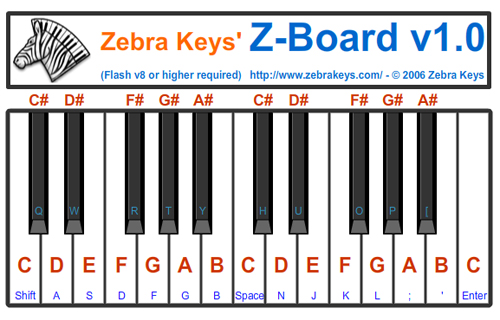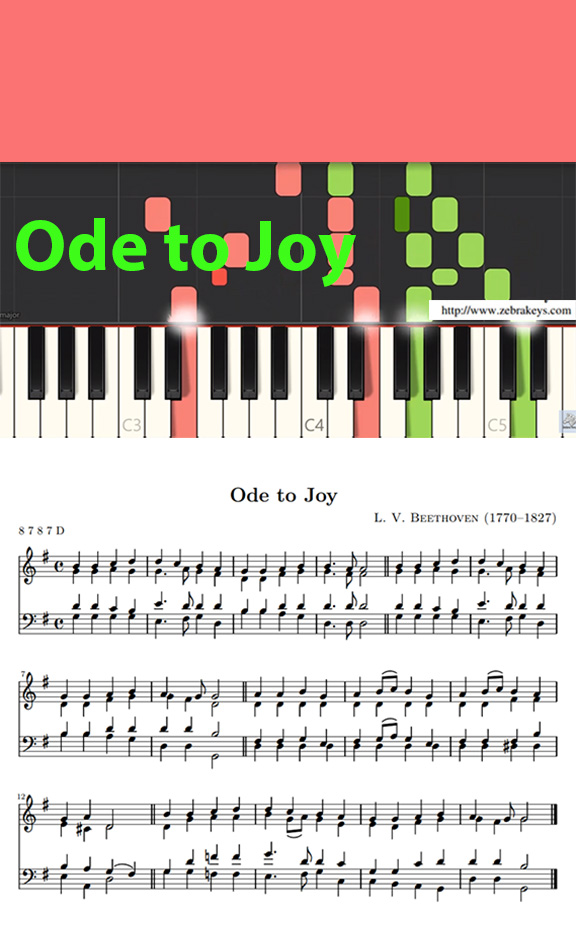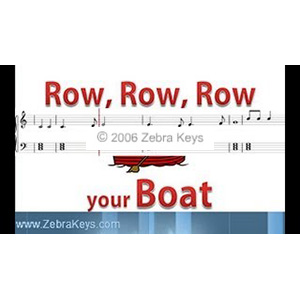Primary chords are Major Chords. So, if your song were to play in the key of C, the chords of the C major scale (C, D, E, F, G, A, B) would have C Chord, F Chord and G Chord being the major chords.
 |
 |
| Here are some of the relaxing piano music for you. Click on the individual icon to download the free sheet music for that song. More of the relaxing music below: |
Learn three easy piano improvisation techniques as listed below, and apply them to your songs. Watch the video below:
at 4:52 – Broken Chord – by breaking up a chord and playing it in two parts. at 6:32 – Double Chord – by playing two of the same chord in a measure.
|
|
Chords that are built on major scale are simply the chord of each note on that particle major scale. For example, in C Major Scale, the notes are: C, D, E, F, G, A and B. By applying the formula of Major Chord (or Triad) which is 1 – 3 – 5, the notes for the C chord are C- E- G. And, the notes of D chord are D – F – A; and the notes of E chord are E – G – B, see below: – **C major (C-E-G)** – **D minor (D-F-A)** – **E minor (E-G-B)** – **F major (F-A-C)** – **G major (G-B-D)** – **A minor (A-C-E)** – **B diminished (B-D-F)** [Review: The formula of Major chord (Root-4HS-3HS). The formula of Minor chord (Root-3HS-4HS).] The next chord is the chord of the second note which is D (in the C Major scale), and by applying the formula of 1-3-5, we’ll play D-F-A, but since D-F-A is Root-3HS-4HS, so the D chord is a D minor chord. [Review: Minor Chord] |
| The third note of the C Major scale is E, and by playing 1-3-5 notes (E-G-B), again the chord is Root-3HS-4HS, which is a minor chord. Read the rest of this entry » |
| Pg. 1 | | | Pg. 2 | | | Pg. 3 | | | Pg. 4 | | | Pg. 5 |
| Pg. 6 | | | Pg. 7 | | | Pg. 8 | | | Pg. 9 | | | Pg. 10 |
| Pg. 11 | | | Pg. 12 | | | Pg. 13 | | | Pg. 14 | | | Pg. 15 |
| Table of Contents | | | Children Music | | | Aura Lee | | | Easy Songs | | | 5-Finger Exercise |
Access free  to practice this song now: How to use Z-BOARD For all users (except for those who have a non-touch screen device) – click directly on the keypad of the Z-Board to play that key. |
| ____________________________ |
| Click below to access: |
| Pg. 1 | | | Pg. 2 | | | Pg. 3 | | | Pg. 4 | | | Pg. 5 |
| Pg. 6 | | | Pg. 7 | | | Pg. 8 | | | Pg. 9 | | | Pg. 10 |
| Pg. 11 | | | Pg. 12 | | | Pg. 13 | | | Pg. 14 | | | Pg. 15 |
| Table of Contents | | | Children Music | | | Aura Lee | | | Easy Songs | | | 5-Finger Exercise |
|
Learn how to play easy and popular song, “Happy Birthday” in this blog. Watch how to play just the notes for the melody for the right hand in the video below. A free virtual piano is provided below for practicing this song. You can also learn how to play Happy Birthday song with chords added. Notes for the melody to be played by the right-hand are – |
| | | GG A | | | G C B | | |
| | | GG A | | | G D C | | |
| | | GG G(high) | | | EC B A | | |
| | | FF E | | | C D C | | |

 |
| | | C C D D | | | EG E C G | | | C C D D | | | E C G | | |
| | | Half a pound of | | | tuppenny rice, | | | half a pound of | | | treacle, | | |
| | | C C D D | | | EG E C | | | A D F | | | E C | | |
| | | That’s the way the | | | money goes, | | | Pop! Goes the | | | weasel. | | |
| | | | | | | | | G | | | |||
| | | C C D E | | | C E D G | | | C C D D | | | E C | | |
| | | E E | | | F F F | | | D D | | | E E E | | |
| | | C C | | | D D D C | | | B G A B | | | C C | | |
Yankee Doodle free sheet music |
|
This Old Man free sheet music If You’re Happy and You Know It free sheet music Read the rest of this entry » |